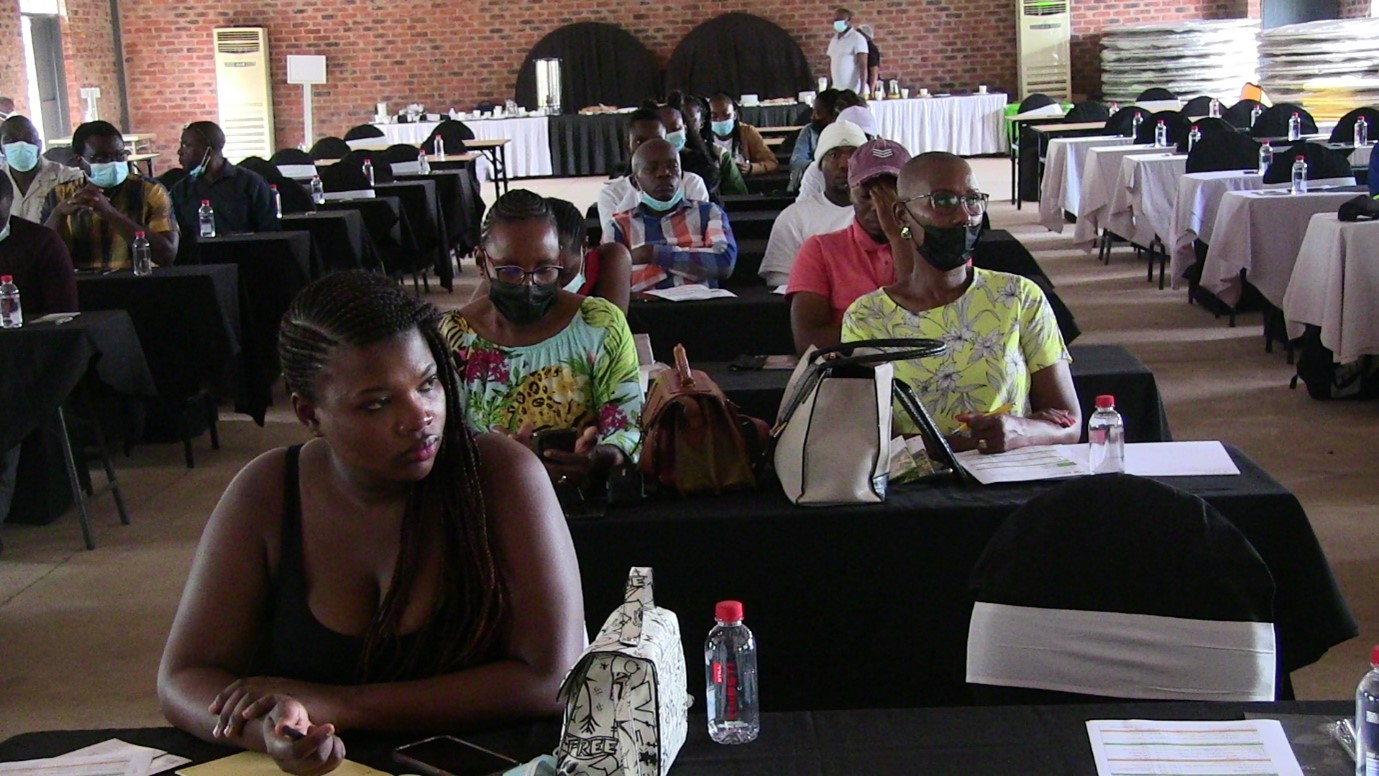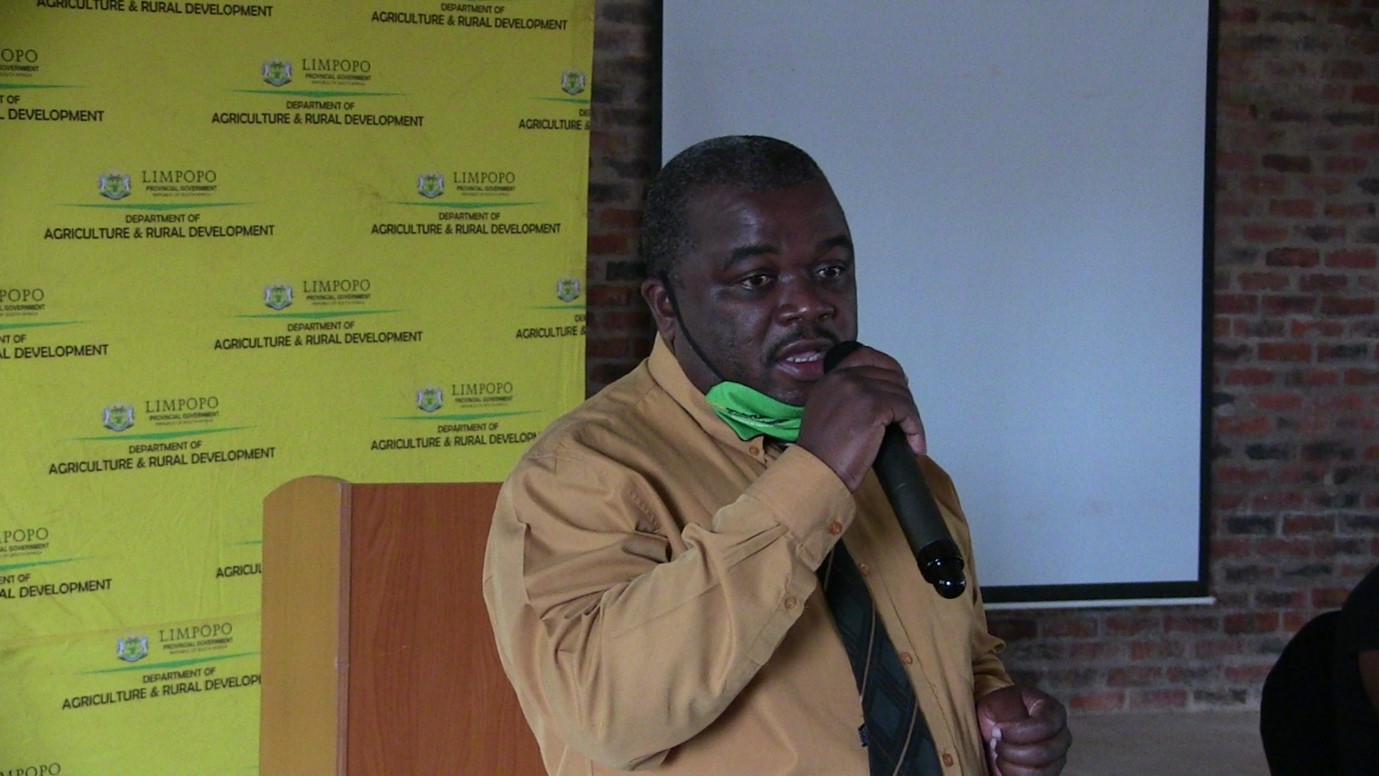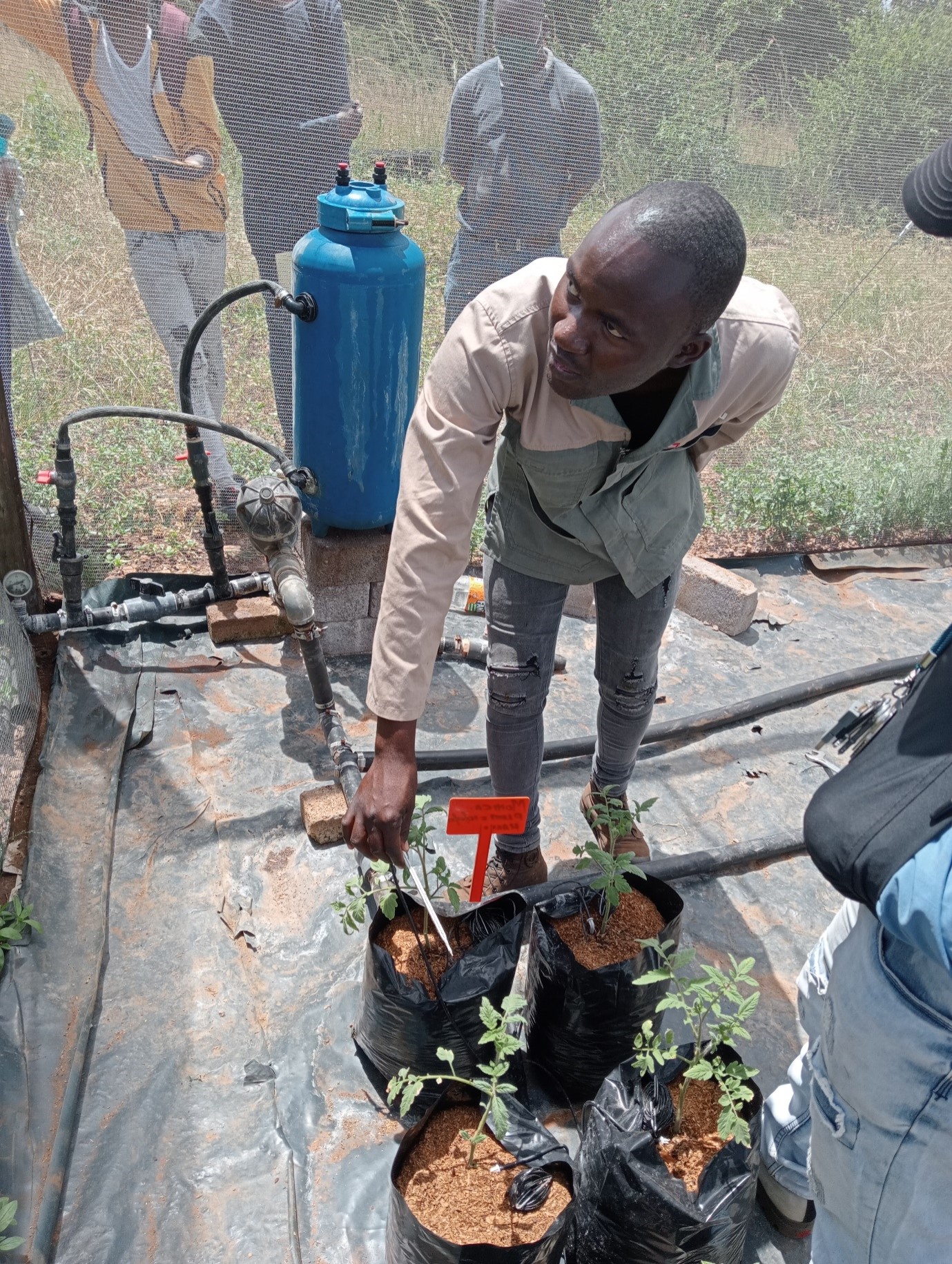By Muifha Tshifhiwa

“Many successful institutions and entrepreneurial industries today have invested either on their succession strategies or knowledge impartation plans,” Limpopo Department of Agriculture and Rural Development (LDARD) Crop Production Deputy Director, Khorommbi Godwin said this during the 8-9 March 2022 Pest Management and Market Access Information sharing workshop at Khoroni hotel organised for Eastern Cluster Agricultural Advisors, Economists, Scientists, Project coordinators and students from Madzivhandila College of Agriculture.
The workshop was to build knowledge capacity on biosecurity to the above-mentioned officials and students through the train-the-trainer workshop. This was a collaboration between the LDARD Crop Production Directorate and the National Department of Agriculture, Land Reform and Rural Development (DALRRD) Food Import and Export standards, Agro-processing support, Development Finance and Marketing Directorates respectively.
The DALRRD officials made various presentations at the workshop. Biosecurity Promotion and Awareness Deputy Director, Sekgala Mpho presented on Plant pest surveillance /Monitoring and reporting of quarantine and phytosanitary pests. He indicated that pests and diseases are responsible for losses of between 20% and 40% of global food production and for trade losses in agricultural products exceeding $220 billion yearly. Sekgala said plant surveillance provides a well-structured information on the presence, absence, or distribution of pests in the area and information about hosts or commodities as pathways.

DARLLD Deputy Director for Food Import and Export Standards directorate Sekgala Mpho during train the trainer workshop in Vhembe District.
Highlighting funding programmes available in the department, Development Finance Deputy Director, Vivian Pila spoke about forms of funding namely, Grant based funding programmes, Loan based programmes and Blended finance programmes. Pila indicated that all the programmes are designed for South African citizens with a valid identity document who are from a historically disadvantaged group.
Later, Biosecurity Promotion and Awareness Assistant Director, Makwaiba Kenny who spoke briefly about some of the quarantine pests of concern to South Africa and their effect to primary production. Another Assistant Director for the same section, Nndwambe Dzivhuluwani whose presentations highlighted the Use of Agro-Chemicals as well as Food safety, quality, and trade in South Africa respectively. Agro-processing opportunities, requirements and compliance was the topic presented by Ago-Processing Deputy Director, Shakwane Koketso. Douglas Mosese, Marketing Deputy Director presented on the Background and context of marketing of agricultural products and marketing information systems.
On the second day, participants visited two projects within the Thulamela Municipality. They started at Remat farm, an 8-hectare (ha) piece of land owned by Rembuluwani Matodzi, a professional engineer. Matotdzi focuses mainly on the production of high value crops such as peppers, baby vegies, cucumbers, and pumpkins. His produce is sold in Johannesburg, Durban, and Cape Town markets. He packages his produce according to the market requirement.
The farmer said he has only two plating seasons to avoid heavy rains. “We have studied the South African weather service and we know that March and August are the best planting seasons in our area,” indicated Rembuluwani.
The team proceeded to Gordhad projects established in 2003, which in recent years has experienced root rot disease on all its crops covering 7-ha area. The farm manager, Mudau Tshimangadzo, stated that the disease is spread by unsterilized hand hoes. He said chemicals to eliminate root rot would cost the project about R950 000.00 or five years without production for it to die on its own.
“Compelled by the situation we faced, we opted to explore hydroponic farming while the production area rests. With Hydroponic, we can maximise production in a small area. Although Hydroponic farming is not immune to pests and diseases, we appreciate that we have so far been able to control them,” Mudau said. In the 70x70 hydroponic space, Mudau has planted tomatoes, green, red and yellow peppers that can make up to 5ha.
Promoting workshops like this Khorommbi said, “We have come to the realisation that workshops of this calibre are necessary to assist our farmers reach their maximum potential.”

the visit by Train the trainer workshop team in Vhembe District.


